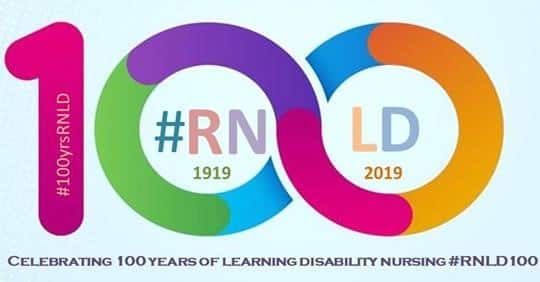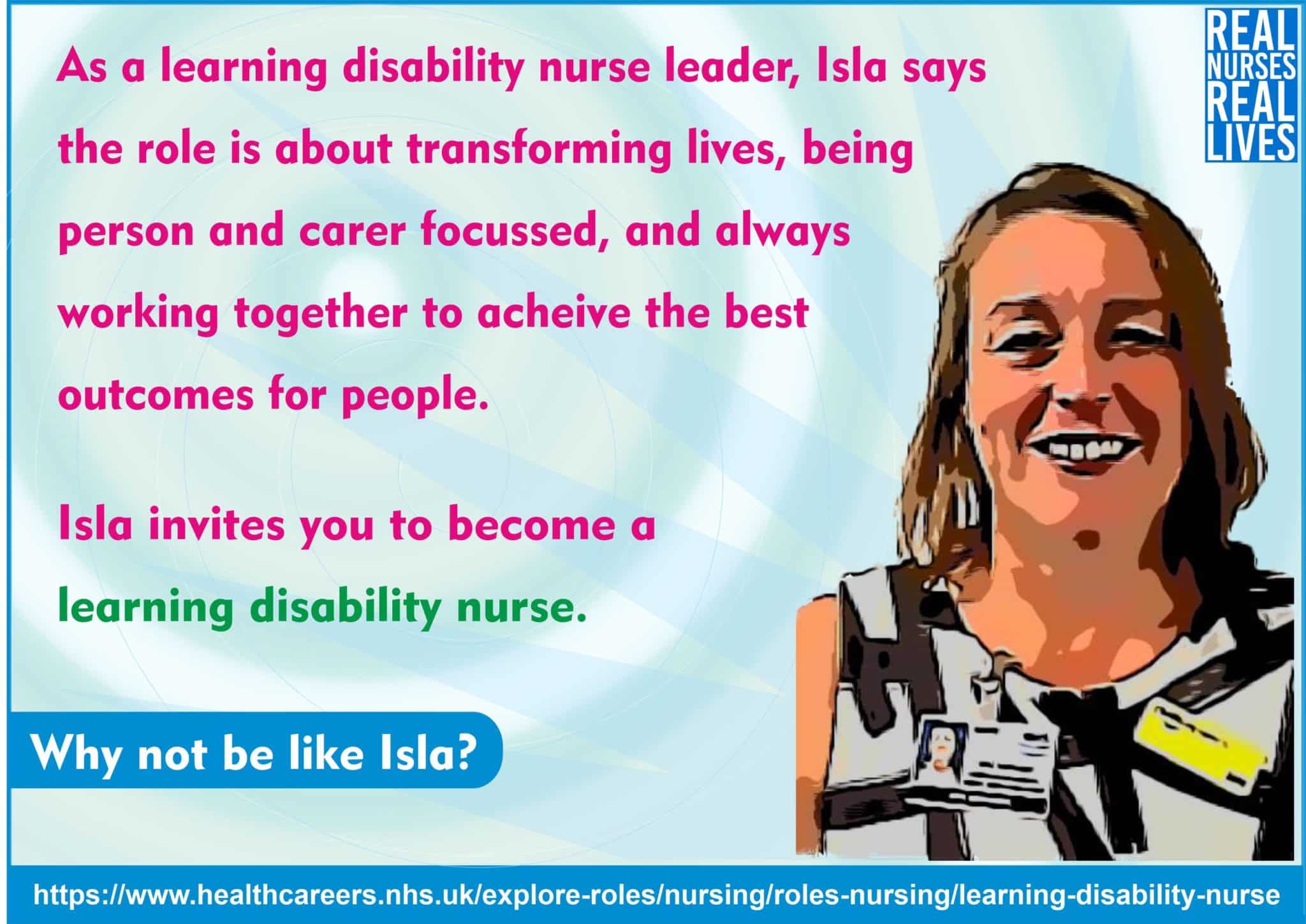
Isla McGlade, Chief Nurse MHLD Services NHS Grampian, shares her passion for her career and celebrates the achievements in Learning Disability Nursing following the 2019 centenary.
What a commitment! As Learning Disability Nursing reaches its centenary, our reach and influence continue to grow. We are integrated into the fabric of health and social care in Scotland.
Learning Disability Nurses (LDNs) are being employed across traditional NHS posts, care homes and independent hospitals or Quarries. Third sector organisations such as ENABLE Scotland, BUPA and The William Quarries’ Epilepsy Centre are now also employing LDNs in both graduate and senior management roles in order to support the health and wellbeing of their members. At ENABLE’s recent parliamentary reception for their 65th birthday, ENABLE’s CEO highlighted the fundamental role of LDNs in reducing inequality.
Essential Scottish Government policies such as The keys to life and Strengthening the Commitment both highlight the inequalities in health and social care experienced by people with a learning disability. LDNs are central to reducing these inequalities through direct intervention and partnerships involving people with learning disabilities, their families and other support networks.
Underpinned by a value base that emphasises holistic, person-centred nursing our practice reaches beyond traditional health and social care initiatives.
We continue to be the only professionally registered group solely educated to work with people with learning disabilities, our raison d’être is to provide. Underpinned by a value base that emphasises holistic, person-centred nursing our practice reaches beyond traditional health and social care initiatives. In many ways, LDNs are the rational addition to a care system dedicated to reducing inequality. We provide assurance that those with a learning disability will experience inclusive practices within healthcare, social care, education and in society at large. We are passionate in our work to ensure that all people with a learning disability are treated as active and equal citizens.
Our work and values are often cited as good practice when it comes to supporting those with conditions such as dementia and autism. This further applies to any condition in which there are difficulties with communication or where stigma and discrimination may be experienced.
Key achievements of the Learning Disability Nurses’ role also includes:
- Promoting access to healthcare
- Health promotion including access and participation in screening programmes
- Providing positive behavioural support
- Complex interventions
- Communication
- Working within the multidisciplinary team
- Education
- Family support
- Adults support and protection
- Promoting person-centred strengths and asset-based ways of working
- Using and developing research in Learning Disability Nursing
- Involvement in legislation, particularly legislation surrounding safeguarding, the equality act and adults with incapacity
- Influence the use of self-directed support and outcomes-based support plans
- Health Equalities Framework
- Evolving the evidence base
Senior LDN leaders meet on a regular basis within the Scottish LDN leads group. Chaired by Isla McGlade of NHS Grampian the leads group represents every territorial board and also specific specialist boards in partnership with Edinburgh Napier and Glasgow Caledonian University. From September 2020 the Open University will also join the group of higher education institutions (HEI) commissioned to deliver Learning Disability Nursing. Bodies such as NHS Education for Scotland, Mental Welfare Commission and third sector, charity, voluntary and private organisations are increasingly employing LDNs as members. The diversity of these memberships indicates the increased scope of employment for LDNs working across Scotland. For HEIs in Scotland delivering non-learning disability, the Scottish Learning Disability Nurses Education Network has been set up as a support resource, unique from any other field of nursing in Scotland.
Our centenary presents a key opportunity to recognise the continued contribution of registered Learning Disability Nurses (RLDNs) and to promote the profession. The person-centred, all-inclusive approach adopted by RLDNs leads to improved health outcomes and an enhanced experience for patients with learning disabilities, their families, and carers. Events celebrating 100 years of Learning Disability Nursing spanned the entirety of 2019 and culminated in the launch of Sustaining the Commitment.

Sustaining the Commitment celebrates the achievements of RLDNs and outlines specific priorities identified by each Chief Nursing Officer across the UK. The intention of this document is to ensure we maintain focus on the needs of individuals with a learning disability to make sure they are supported and to enable them to live a full and healthy life. The document also reinforces the importance of the Registered Learning Disability Nurse. I chose to be a Learning Disability Nurse and I am proud to continue supporting the population we assist as Learning Disability Nursing progresses toward another 100 years.
Learning Disability Nurses have a pivotal role to play in our recovery from the impact of COVID-19 and I have no doubt that our commitment will remain unwavering.
You can read more about Sustaining the Commitment at https://www.gov.scot/publications/sustaining-commitment/
Isla McGlade is also Chair of the Scottish Learning Disability Nurse Leads Group, Chair of the UK Sustaining the Commitment steering group and Scottish representative to the UK Learning Disability Professional Senate.
The Scottish representatives for the UK Nurse Consultant Network are Kerry Anderson and Gary Docherty.